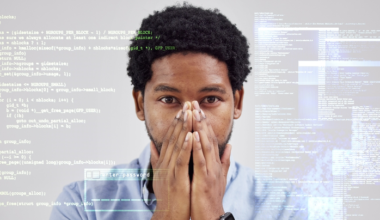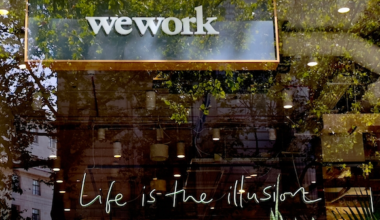Like many other immigrant entrepreneurs, Archer Chiang, who is the founder of a corporate gifting platform, sought to solve his own problems. While studying as an international student in the U.S., he missed his family back in Taiwan and wanted to send gifts as a way of expressing his care.

Choosing thoughtful presents was expensive and time-consuming, however.
“I was trying to figure out if I could send experiences, like a song or fireworks,” he said.
Eventually, Chiang launched Giftpack.AI, a platform delivering presents worldwide. The company uses AI to choose personalized gifts depending on the recipient’s hobbies and interests.
To date, the startup has raised $4.3 million and delivered over 50,000 gifts. Giftpack now works with Google, J.P. Morgan Chase, and Meta to send tailored gifts to customers and employees across 220 countries.
Chiang is not the only immigrant entrepreneur who dived into AI because of his personal experience. For example, Ivan Crewkov launched Buddy, the first conversational AI tutor for kids, because his daughter struggled with English after moving to the U.S.
Manuel Godoy and Bernardo Garcia, two Latinx founders, developed Felix Pago, an AI-enabled FinTech platform allowing families to send remittances from the U.S. to Mexico through a WhatsApp-enabled chatbot.
Where do they come from
A new executive order signed by President Biden on October 30 could help international AI startup founders by streamlining their visa applications. The initiative comes as an acknowledgement of the immigrant contribution.
Immigrants have founded or co-founded 65% of the top AI companies in the U.S., according to a National Foundation for American Policy (NFAP) study. The research also identified at least 25 billion-dollar U.S.-based AI companies with at least one immigrant founder.
Indians, who founded ten of the 50 top U.S.-based AI companies, are dominating the field. Immigrants from Israel and the UK are second with three startups, followed by Canada, China and France with two each.
How did international AI entrepreneurs emerge in America? Universities are the main suppliers: 42% of the top U.S.-based AI companies have a founder who came to the U.S. as an international student.
Over 70% of full-time graduate students in computer and information life sciences, which are the leading fields of study for AI researchers, are coming from abroad.
Education or personal need is not the only reason why foreign-born entrepreneurs thrive in the field of AI. Raj Koneru, founder and CEO of Kore.ai, believes an immigrant background contributed to his ability to “think out of the box and try different tactics to achieve success.”
Koneru has lived in the U.S. for the last 33 years since emigrating from India. His platform allows businesses to communicate with customers, agents, and employees. The company raised $73.5 million to date.
Before launching Kore.ai in 2014, Koneru founded Kony, a cloud-based mobile app development platform, and a number of other companies.

“Immigrants have a unique characteristic of survival which allows imagination, creativity, and hard work to come together to meet their objectives,” Koneru said.
The story of Manana Samuseva, founder of Babylon Voice, an AI solution for a secure voice-based identification, is another case that proves his point.
Unique characteristic of survival
After losing her father to cancer during Covid-19, serial entrepreneur Manana Samuseva returned to New York City from her home country. Her personal tragedy was followed by more challenges, such as identity theft and bank account hacking.

“All my belongings were stolen in a hotel, including my ID, bank cards and MacBook,” Samuseva said.
“My account was hacked. The banks demanded two documents, leaving me without proper identification and access to funds.”
It was during this period that banks began noticing a significant surge in deep-fake attacks. Amid her personal crisis, the idea of Babylon Voice emerged.
The solution utilizes AI Voice ID to verify authenticity, secure payments, safeguard decentralized digital identity, and more.
Samuseva believes her immigrant background has equipped her with the tenacity to persevere in the face of adversity.
“The experience of relocating to a new country has instilled in me qualities like resilience and adaptability,” Samuseva said. “These invaluable traits have played a pivotal role in navigating the inherent challenges of entrepreneurship.”
Samuseva believes in the power of AI as a transformative force “that will forever reshape our approach to finance and privacy.”
* Special credit to Cara Kishter, The Vertical, for her contribution to this article.








